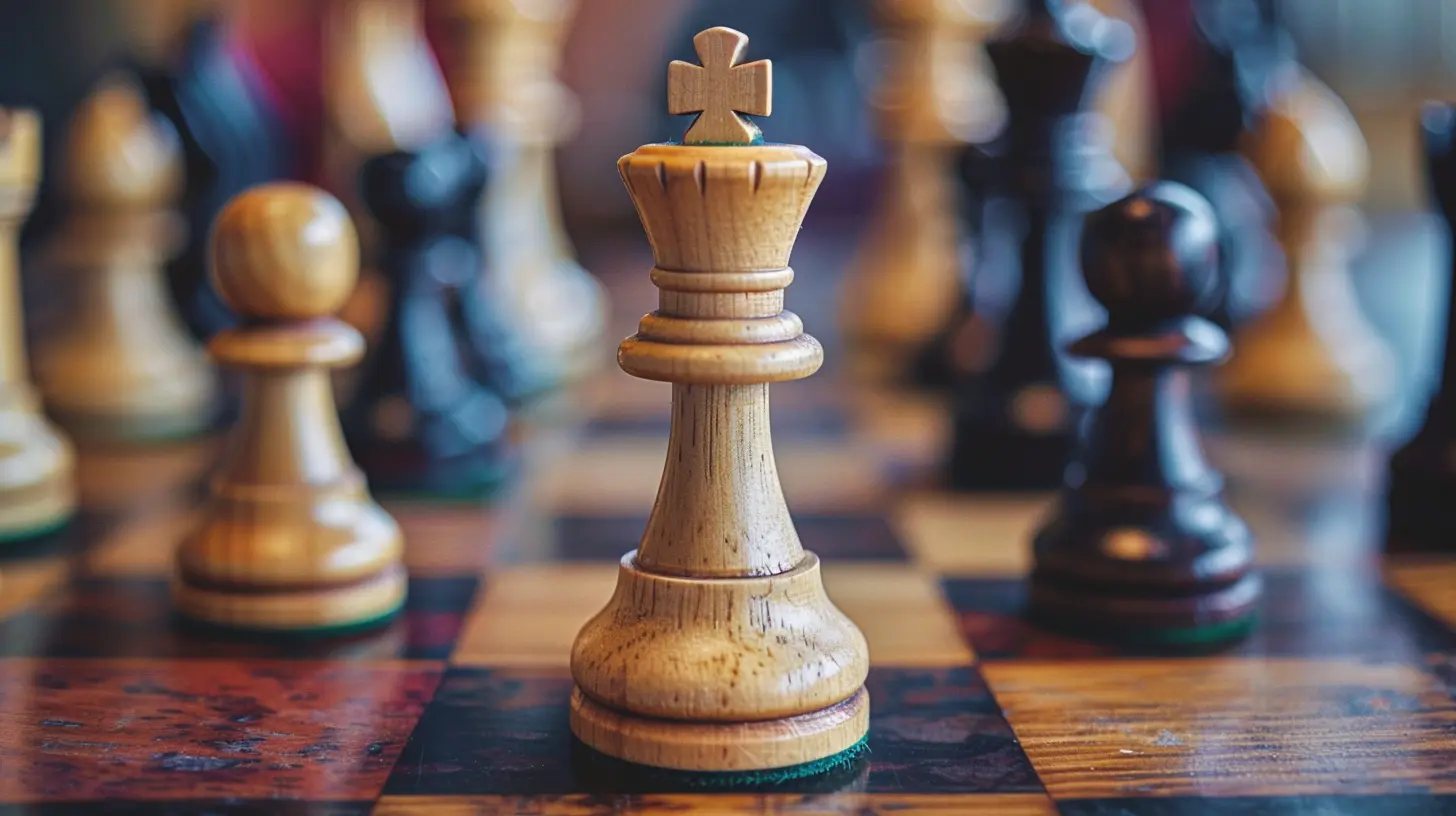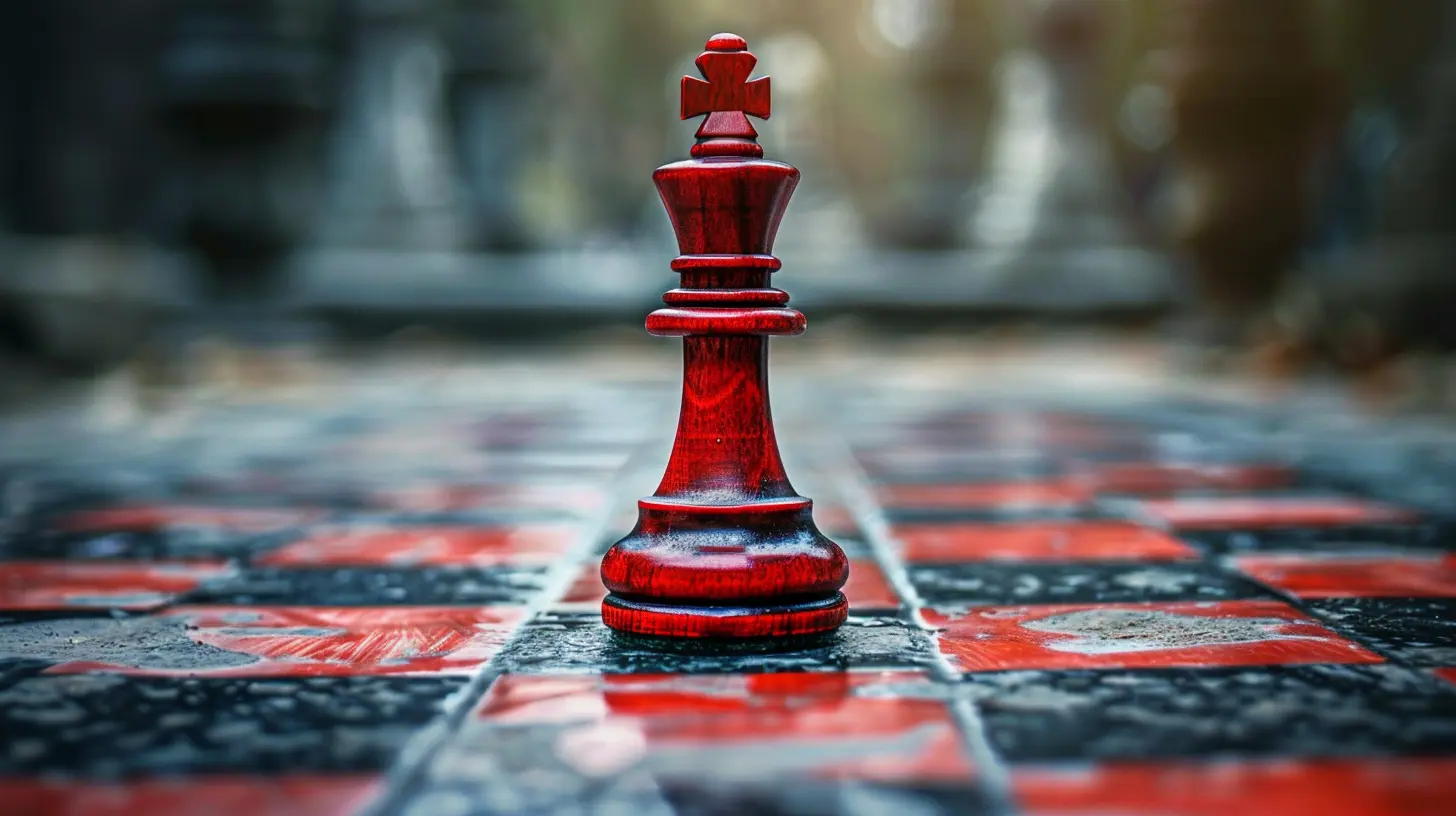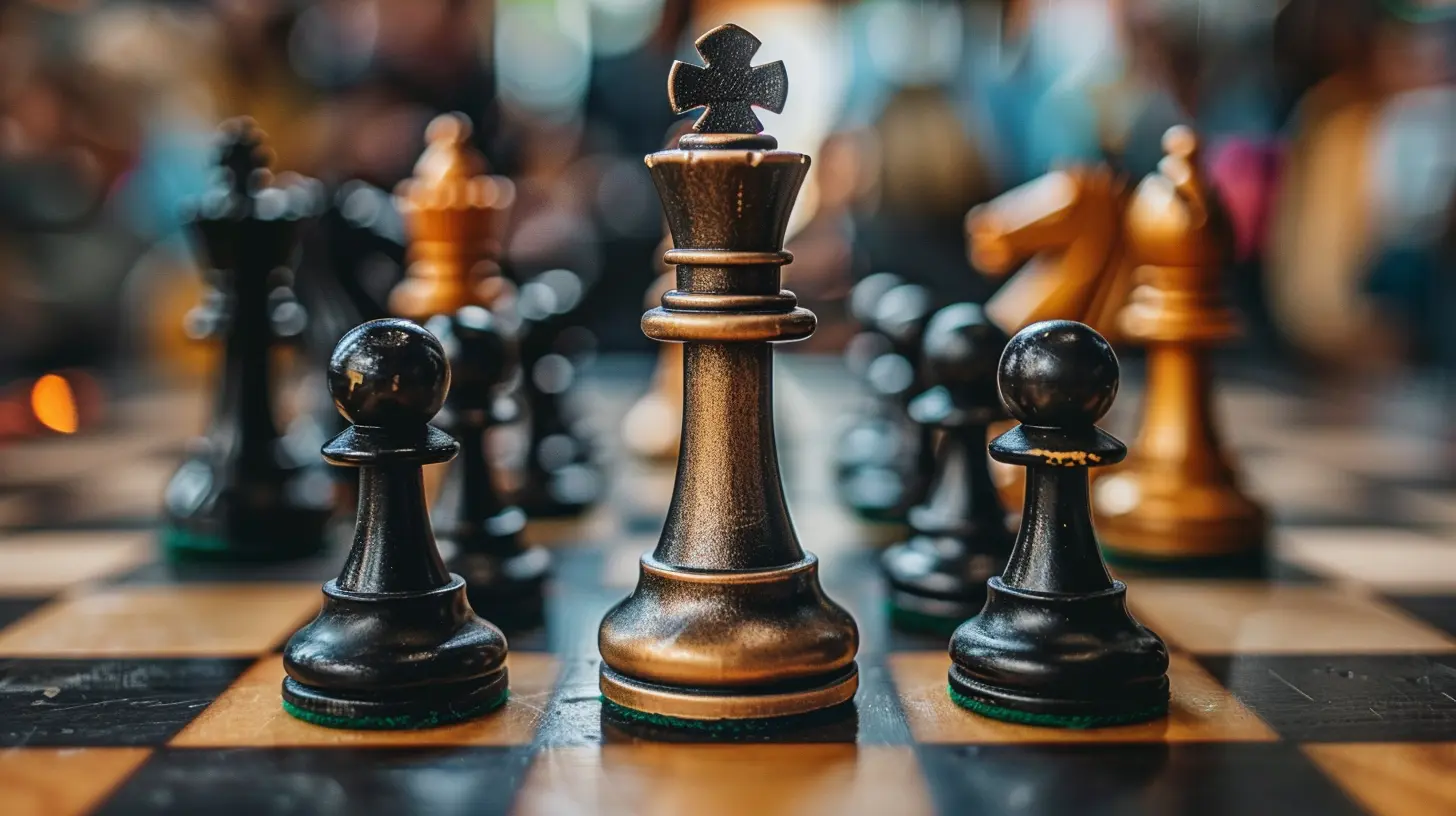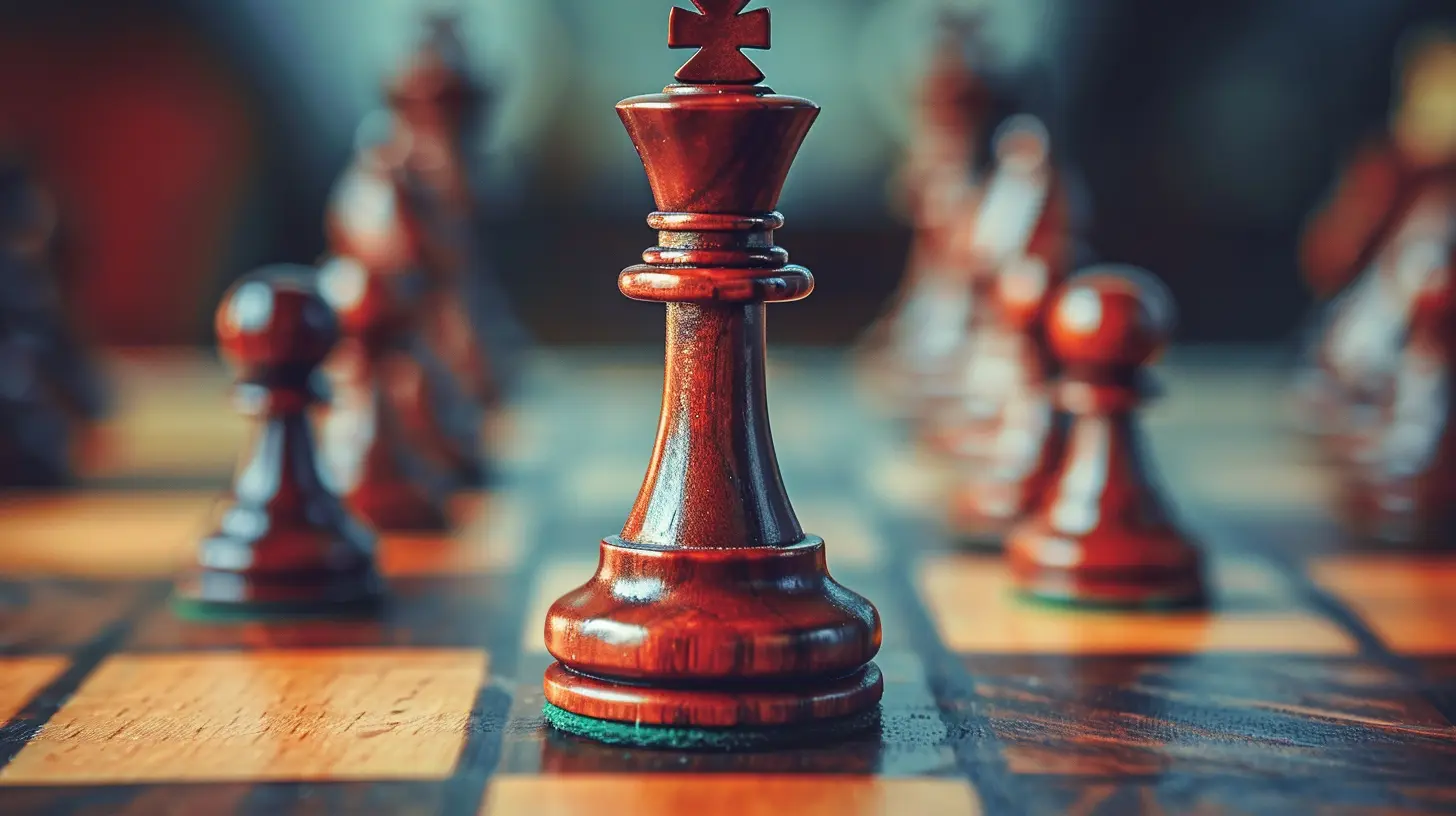The Psychology of Winning in Competitive Games
6 October 2025
Winning feels good, doesn't it? Whether you're crushing it in League of Legends, pulling off a last-second clutch in Valorant, or dominating your opponents in FIFA, there's something about the taste of victory that keeps gamers coming back for more. But what separates the consistent winners from the rest? Is it just reaction time or game knowledge? Well, not entirely. Much of it boils down to psychology—the internal mindset and mental habits that shape how we play, react, and grow.
In this article, we're going deep into the mind of a winner. We're talking focus, resilience, confidence, motivation, and how all of these psychological traits impact your performance in competitive games. So buckle up, because we’re about to give your brain a power-up.
Why Psychology Matters in Gaming
Let’s be real. You could have the fastest aim or the sharpest mechanics, but if you tilt, panic under pressure, or lose motivation, those skills won't save you. Competitive gaming is not just about how well you play—it's about how well you handle the game.Think of it like this: Your mind is your controller. If your controller is sticky or has a busted analog stick, your performance tanks. Similarly, if your mindset is off—full of doubt, anger, or distractions—your performance drops even if your mechanics are flawless.
So, how do we fix that “controller”? Let’s break it down.
The Winner's Mindset: It's a Real Thing
Winners think differently. That’s not just a motivational poster quote; it’s backed by sports psychology and countless studies.Growth Mindset vs. Fixed Mindset
Let’s start here. According to psychologist Carol Dweck, people generally adopt one of two mentalities:- Fixed mindset: You believe your abilities are static. If you lose, it’s because you’re just not good enough.
- Growth mindset: You believe skills can be developed. Failure is just a stepping stone to improvement.
Guess which one winners usually have?
When pro players talk about “learning from every loss,” they’re not being cliché. They’re using a growth mindset. Every match, win or lose, is data. It’s a chance to adapt and evolve.
Confidence: Earned and Reinforced
Confidence isn’t arrogance. It’s a deep belief that you can win. And yeah, confidence fluctuates based on your experiences, but it can be trained.Confidence grows when you:
- Practice consistently
- Review your gameplay
- Celebrate small wins
- Accept constructive criticism
Ever wonder why some players seem to dominate even when they’re behind? It’s belief. They’ve trained their mind not to panic, not to doubt. That’s the kind of confidence that turns games around.
Focus and Flow: The Secret Sauce
Have you ever been so locked in during a match that time just disappeared? You weren’t thinking, just doing. That’s called the flow state, and it’s a psychological phenomenon that leads to peak performance.Getting Into the Zone
To enter a flow state, you need:- A clear goal (win the round, survive the fight)
- Immediate feedback (in most games, you know instantly if you messed up)
- The right level of challenge (not too easy, not too hard)
Distractions kill flow. So, if you've got 12 tabs open, your phone buzzing, and music blasting, guess what? You're never getting there.
Train your brain to focus. Practice mindfulness. Limit distractions. Do some breathing exercises before a match. You’d be surprised how much that can help.
Dealing with Tilt: The Gamer’s Kryptonite
Let’s talk about tilt. You know—when a single bad play sends you into a downward spiral of frustration, rage, and questionable decisions. Tilt is where psychology really comes into play.Recognizing Tilt
Tilt sneaks up on you. Maybe it's a wonky teammate, a broken hitbox, or just a bad game. You start making uncharacteristic plays. You’re chasing kills, blaming your team, or just giving up mid-match.When that happens, stop. Literally. Pause between games. Take a breath. Refocus.
Handling Emotions Mid-Game
You won’t always have time for a break. So, train yourself to stay calm during chaos. Pros often use techniques like:- Self-talk: “It’s just one round. I can come back.”
- Pattern interruption: Doing something random to break the tilt loop (like standing up or stretching)
- Fallback strategies: Defaulting to safe, solid plays when your instincts go haywire
Remember: Emotions are natural. What matters is how you manage them.
Building Mental Resilience: Bounce Back Like a Boss
You've seen those insane comebacks, right? Teams down 0-2 that pull off a reverse sweep? That’s not just game knowledge or luck. That’s mental resilience.Train Your Mental Muscles
Resilience is like a muscle. You build it by:- Facing adversity regularly
- Reflecting on setbacks instead of hiding from them
- Being honest about your weaknesses
- Learning humility through defeat
Next time you lose a close match, instead of flaming your team or uninstalling the game, ask yourself: “What did I do well, and what can I fix?”
This shift alone changes everything.
Motivation: What Keeps You Grinding?
We all hit slumps. Those days when we just can’t be bothered to queue up. That’s where the deeper layers of motivation come in.Intrinsic vs. Extrinsic Motivation
- Extrinsic motivation: Climbing ranks, earning rewards, impressing others- Intrinsic motivation: Loving the process, enjoying the challenge, growing as a player
Long-term winners lean into intrinsic motivation. They love the game. They love getting better, not just getting rewards.
So, ask yourself: Why do you play? If your answer is only “to rank up,” your motivation might not survive the losing streaks. But if you enjoy mastering mechanics, improving decision-making, and pushing your limits, you'll keep going even when things get tough.
The Power of Visualization and Mental Practice
Here’s something top athletes, chess players, and esports pros have in common: visualization.Mental Reps Matter
Your brain doesn’t fully distinguish between doing something and imagining it vividly. So, when you visualize yourself clutching a 1v3 or executing a perfect rotation, you’re actually reinforcing those actions.Before matches, try visualizing:
- Common game scenarios
- How you’ll respond under pressure
- Staying calm and focused
It sounds woo-woo, but it works. Mental practice is real practice.
Team Dynamics and Communication
If you play team games, your mindset can influence the whole squad. Tilting, negativity, or poor communication—those are morale bombs. A strong mental game isn’t just about you; it makes you a better teammate too.Positive Comms = Positive Results
Ever been in a match where one positive player lifted the entire team? That’s the power of good energy and clear communication.- Use your mic to give info, not just vent
- Encourage good plays
- Stay solution-focused during rough patches
Wanna win more? Start being the mental backbone of your team.
Tools and Techniques to Power Up Your Mindset
Alright, let’s get practical. Here are some tools and methods you can start using today to boost your gaming psychology.1. Journaling
Yes, journaling. After matches, jot down:- What went right
- What went wrong
- How you felt
This builds self-awareness and helps you see patterns.
2. Pre-Game Rituals
Create a routine to get in the zone. Warm-up matches, listening to specific music, stretching—anything that centers you.3. Goal-Setting
Set micro-goals like “don’t tilt,” “communicate more,” or “position better.” Not every session has to be about winning.4. Mindfulness and Breathing
Apps like Headspace or Calm are great. Even simple 5-minute breathing exercises between matches can ground you.Final Thoughts: Winning Starts in the Mind
Let’s wrap this up. Yes, mechanics matter. Yes, knowledge matters. But if you're not training your mind, you're leaving wins on the table.Winners in competitive games aren’t just better players—they’re better thinkers. They’ve mastered their emotions, sharpened their focus, and built resilient mindsets that carry them through those inevitable losing streaks.
So, next time you queue up, remember: your biggest power-up isn’t that new skin or that new strat—it’s the space between your ears. Train it. Respect it.
Because in the end, victory isn’t just about hitting the target. It’s about becoming the kind of player who never stops aiming higher.
all images in this post were generated using AI tools
Category:
Game GuidesAuthor:

Leandro Banks
Discussion
rate this article
1 comments
Nancy Gill
Understanding the psychological dynamics of winning can elevate player performance, but overemphasis may lead to unhealthy competition.
October 7, 2025 at 3:57 AM

Leandro Banks
Thank you for your insightful comment! Balancing psychological strategies with a focus on healthy competition is indeed crucial for sustainable player development.


